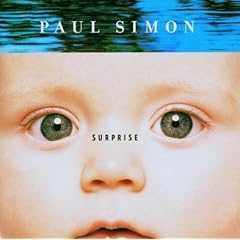My thoughts on The State of the News Media 2004
Not that you asked, but CASE, the professional organization to which I belong, did. That's one reason why I'm here in lovely Charleston, S.C., to lead "horizon issue" discussion about what this report from Journalism.org means to higher ed PR flacks like me. So before I rush off to the meeting, here are a few of the points I'll present from the report, and my thoughts on how education might capitalize on the trends as outlined by the report:
* Education isn't considered newsworthy by most media. (No surprise there.)
* Bloggers are becoming more prominent sources for news and opinion. (Yawn.)
* The nightly news "news hole" for networks has shrunk by 11 percent since 1990 to make room for more ads, teasers, etc.
* The "Fox Effect" of cable news has less to do with ideology than with how news is presented. Fox is rewriting the way the news story is told, relying more on anchors, talking heads and talk shows than on correspondents in the field.
* People trust local TV news more than local newspapers or network news, but trust cable news networks (especially CNN) the most.
* Radio is "journalism's forgotten but stable middle child." More than 90 percent of Americans listen to radio (an increase because more are driving, and more commuting time), and they tend not to change the dial when the news comes on.
* NPR's audience has doubled in the last decade, and many of those listeners are influentials.
* The ethnic press -- especially Latino and Asian press -- seems to hold the most potential for growth among any media. But ethnic press audiences tend to trust English-language media more than the ethnic press.
* Alternative weeklies are also growing, but at a slower pace than ethnic press. (Growth in terms of circulation and ad revenue.) Their audiences tend to be in the 30s and 40s and with higher-than-average incomes and educations. (Makes one wonder just how "alternative" the alternative press is.)
Now, how should educational institutions respond to these trends? Here are a few ideas:* Get in on the blogging phenomenon -- perhaps "grow our own" influential bloggers from among some star faculty who are experts in particular areas.
* Strengthen ties with local TV, ethnic press and alternative press.
*Don't ignore radio -- especially NPR -- as an outlet for education news.
:: Andrew 07:42 + ::
...
bloggedy blog
bloggedy blog recommends
bloggedy pod (my podcast page)
Independent hotels
in Missouri
eMusic's Power Charts: The Most Interactive Music Charts Online.
In rotation
What I've been listening to lately. Click album cover or hyperlink to hear track samples and learn more.
 Rickie Lee Jones, Sermon on Exposition Boulevard
Rickie Lee Jones, Sermon on Exposition Boulevard
 Patty Griffin, Children Running Through
Patty Griffin, Children Running Through
 Of Montreal, Hissing Fauna, Are You the Destroyer?
Of Montreal, Hissing Fauna, Are You the Destroyer?
 Field Music, Tones of Town
Field Music, Tones of Town
 De Bossen, The Girl Collection
De Bossen, The Girl Collection
 Cold War Kids, Robbers & Cowards
Cold War Kids, Robbers & Cowards

Frida Hyvonen, Until Death Comes

Tratore Basics Vol. 2, Novo Rock Brazil
 Yusuf: An Other Cup
Yusuf: An Other Cup
 The Beatles: Love
The Beatles: Love

The French Kicks: Two Thousand

The Blow: Paper Television

Freedom Haters Unite! A Bloodshot Records Sampler

Swan Lake: Beast Moans

Prototypes: Prototypes

Scanners: Violence Is Golden

Voxtrot: Mothers, Sisters, Daughters & Wives

Voxtrot: Your Biggest Fan

Macon Greyson: Translate

The Evens: Get Evens

Veruca Salt: Veruca Salt IV
 Bob Dylan: Modern Times
Bob Dylan: Modern Times

Pink Tuscadero: Look Your Best

Leigh Nash: Blue on Blue

Yo La Tengo: I Am Not Afraid of You and I Will Beat Your Ass

The Hold Steady: Boys and Girls in America

Bobby Bare Jr.: The Longest Meow"

The Be Good Tanyas: Hello Love

The Lemonheads: The Lemonheads

Ben Kweller: Ben Kweller

The Pipettes: We Are the Pipettes
 Paul Simon: Surprise
Paul Simon: Surprise

Exene Cervenka and the Original Sinners: Sev7en
 Johnny Cash: American V: A Hundred Highways
Johnny Cash: American V: A Hundred Highways

The John Doe Thing: For the Best of Us

The Fondas: Runaway Bombshell

Buzzcocks: Flat Pack Philosophy

Asobi Seksu: Citrus

Tapes 'n Tapes: The Loon

Various Artists: 2006 Pitchfork Music Festival Sampler (24 free tracks)

The Futureheads: News and Tributes

The Bottle Rockets: Zoysia

Camera Obscura: Let's Get Out of This Country

Art Brut: Bang Bang Rock & Roll

Drive By Truckers: A Blessing and a Curse

The Raconteurs: Broken Boy Soldiers

Belle and Sebastian: The Life Pursuit

Cat Power: The Greatest
bloggedy tags
from our sponsors
for your viewing pleasure
24x7
rocketboom
the Richard Show



 Simon Dawes,
Simon Dawes,